The term 'race' or 'genus' is used (1) if generation of things which have the same form is continuous, e.g. 'while the race of men lasts' means 'while the generation of them goes on continuously'.-(2) It is used with reference to that which first brought things into existence; for it is thus that some are called Hellenes by race and others Ionians, because the former proceed from Hellen and the latter from Ion as their first begetter. And the word is used in reference to the begetter more than to the matter, though people also get a race-name from the female, e.g. 'the descendants of Pyrrha'.-(3) There is genus in the sense in which 'plane' is the genus of plane figures and solid' of solids; for each of the figures is in the one case a plane of such and such a kind, and in the other a solid of such and such a kind; and this is what underlies the differentiae. Again (4) in definitions the first constituent element, which is included in the 'what', is the genus, whose differentiae the qualities are said to be 'Genus' then is used in all these ways, (1) in reference to continuous generation of the same kind, (2) in reference to the first mover which is of the same kind as the things it moves, (3) as matter; for that to which the differentia or quality belongs is the substratum, which we call matter.
Those things are said to be 'other in genus' whose proximate substratum is different, and which are not analysed the one into the other nor both into the same thing (e.g. form and matter are different in genus); and things which belong to different categories of being (for some of the things that are said to 'be' signify essence, others a quality, others the other categories we have before distinguished); these also are not analysed either into one another or into some one thing.
29
'The false' means (1) that which is false as a thing, and that (a)because it is not put together or cannot be put together, e.g. 'that the diagonal of a square is commensurate with the side' or 'that you are sitting'; for one of these is false always, and the other sometimes; it is in these two senses that they are non-existent. (b)There are things which exist, but whose nature it is to appear either not to be such as they are or to be things that do not exist, e.g. a sketch or a dream; for these are something, but are not the things the appearance of which they produce in us. We call things false in this way, then,-either because they themselves do not exist, or because the appearance which results from them is that of something that does not exist.
(2) A false account is the account of non-existent objects, in so far as it is false. Hence every account is false when applied to something other than that of which it is true; e.g. the account of a circle is false when applied to a triangle. In a sense there is one account of each thing, i.e. the account of its essence, but in a sense there are many, since the thing itself and the thing itself with an attribute are in a sense the same, e.g. Socrates and musical Socrates (a false account is not the account of anything, except in a qualified sense). Hence Antisthenes was too simple-minded when he claimed that nothing could be described except by the account proper to it,-one predicate to one subject; from which the conclusion used to be drawn that there could be no contradiction, and almost that there could be no error. But it is possible to describe each thing not only by the account of itself, but also by that of something else.
This may be done altogether falsely indeed, but there is also a way in which it may be done truly; e.g. eight may be described as a double number by the use of the definition of two.
These things, then, are called false in these senses, but (3) a false man is one who is ready at and fond of such accounts, not for any other reason but for their own sake, and one who is good at impressing such accounts on other people, just as we say things are which produce a false appearance. This is why the proof in the Hippias that the same man is false and true is misleading. For it assumes that he is false who can deceive (i.e. the man who knows and is wise);and further that he who is willingly bad is better. This is a false result of induction-for a man who limps willingly is better than one who does so unwillingly-by 'limping' Plato means 'mimicking a limp', for if the man were lame willingly, he would presumably be worse in this case as in the corresponding case of moral character.
30
'Accident' means (1) that which attaches to something and can be truly asserted, but neither of necessity nor usually, e.g. if some one in digging a hole for a plant has found treasure. This-the finding of treasure-is for the man who dug the hole an accident; for neither does the one come of necessity from the other or after the other, nor, if a man plants, does he usually find treasure. And a musical man might be pale; but since this does not happen of necessity nor usually, we call it an accident. Therefore since there are attributes and they attach to subjects, and some of them attach to these only in a particular place and at a particular time, whatever attaches to a subject, but not because it was this subject, or the time this time, or the place this place, will be an accident.
Therefore, too, there is no definite cause for an accident, but a chance cause, i.e. an indefinite one. Going to Aegina was an accident for a man, if he went not in order to get there, but because he was carried out of his way by a storm or captured by pirates. The accident has happened or exists,-not in virtue of the subject's nature, however, but of something else; for the storm was the cause of his coming to a place for which he was not sailing, and this was Aegina.
'Accident' has also (2) another meaning, i.e. all that attaches to each thing in virtue of itself but is not in its essence, as having its angles equal to two right angles attaches to the triangle. And accidents of this sort may be eternal, but no accident of the other sort is. This is explained elsewhere.















